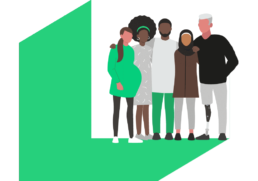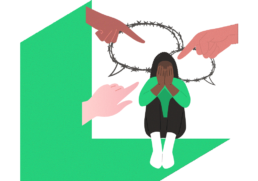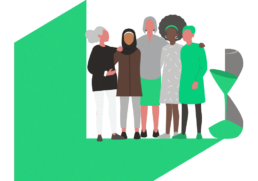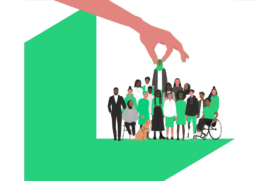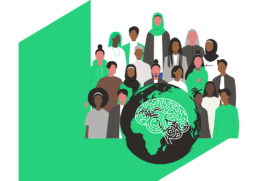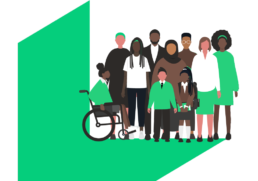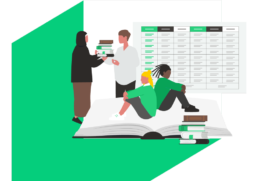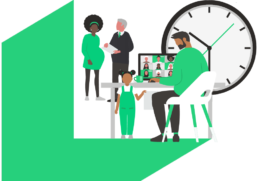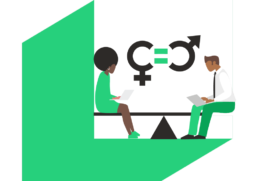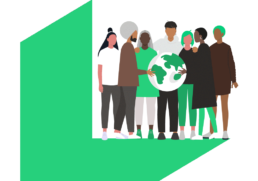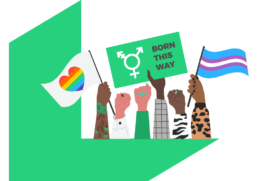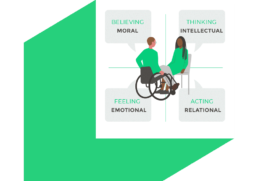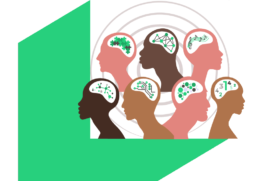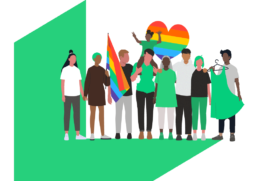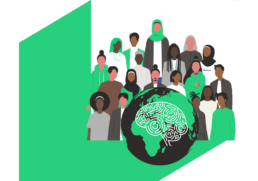Our Taking Trauma-Informed Approaches to DEI Training
Our Taking Trauma-Informed Approaches to DEI Training
Our Taking Trauma-Informed Approaches to DEI Training
Our Training Offer
We support teachers, leaders and student support professionals in schools and trusts, in developing their consciousness, confidence and competence in deploying trauma-informed approaches.
We can deliver face to face and virtually, for twilights, INSETs and conferences.
We will create a safe space for you to explore how to create safe and stable environments for our young people to empower them to have agency.
- Developing an awareness of trauma responses
- Becoming conscious of the factors that cause trauma
- Expanding our understanding of how trauma relates to DEI
- Reflecting on the impact that prejudice and discrimination can have on an individual
- Discussing how we respond to behaviours impacted by trauma as individuals and institutions
- Exploring trauma-informed principles and practices
We have participated in two training sessions with Diverse Educators now and all staff, governors and other stakeholders, such as therapists have given very positive feedback. Both facilitators were knowledgeable, dynamic and able to provoke highly stimulating discussion. They were able to reach all roles within the school and helped us to have some happily uncomfortable conversations. We have a clear way forward in terms of continuing to review our provision through the lens of DEI with the support of this company.
Francesca Smith, Headteacher
Our Training Workshops - Themes
Our Training Workshops – Themes
Our Training Workshops – Themes
We have designed and we deliver a number of workshops to be delivered at conferences, on INSET days and for twilights, individually or as a series.
Each workshop will explore a different key theme that is pertinent to a DEIB strategy in an educational context.
We have a vast and diverse network and can curate bespoke sessions on a number of different themes to further explore diversity, equity, inclusion and belonging.
Get in touch to book a session for your school/ trust/ hub/ event.
Hannah and the team at DiverseEd have the unique ability to foster conversations that lead to genuine reflection and longer-lasting change. The deep knowledge base and the skillful and personable manner in which Hannah delivered the session empowered our team to self-reflect and openly consider how we can use our lived experiences and in some cases privilege and power to make our Trust and schools a place where all can feel that they belong.
James Roach, CEO, Inclusive MAT
The CPD was simply perfect for what we needed. It provided a safe yet supportive space to discuss our experience, knowledge and to learn. I couldn’t recommend Diverse Educators more.
Cheska Tyler, Headteacher
A truly thought-provoking session on what it means to be inclusive! A session for all stakeholders of all schools!
Sebastian Gray, Headteacher
EAL and Multilingualism Toolkit
EAL and Multilingualism Toolkit
EAL and Multilingualism Toolkit
Toolkit collated by Catherine Brennan
What Is EAL?
EAL (English as an Additional Language) students are an extremely heterogeneous group with second and third generation families, well-settled economic migrants mainly from the European Union countries, and some newly arrived students, refugees and asylum seekers. They have varied life, and consequently educational, experiences. According to Department of Education (2020) ‘a pupil is recorded as having English as an additional language (EAL) if they are exposed to language at home that is known or believed to be other than English. It is not a measure of English language proficiency or a good proxy for recent immigration.’
What Is Multilingualism?
The term ‘multilingualism’ describes the use or co-existence of several languages in one place – whether that’s a country, a school, a classroom or a home. By contrast, the term ‘plurilingual’ describes a person who speaks several languages. Although a plurilingual person may or may not have equal fluency in each language, what is clear is that the use of two or more languages brings a range of benefits – both social and academic.
Almost – if not all – schools in England are multilingual contexts: see link.
With more than 1.6 million pupils using further languages (or ‘first languages’) in addition to English: see link.
How Does Multilingualism Link to EAL in Education?
The DfE requires all schools to capture information on their multilingual contexts by identifying pupils as having ‘EAL’ or ‘English as an Additional Language’ in the January school census. Whilst the DfE ‘EAL’ descriptor tells us nothing about fluency levels in English nor in first languages (e.g. Pashto, Somali, French or Twi), it is a useful initial way of positively acknowledging the diversity of languages represented by our plurilingual children and young people in our multilingual schools.
How Does EAL Relate to Equalities Legislation in Schools?
Language and identity are inextricably linked; therefore, promoting the attainment of pupils learning through EAL is an equality duty for schools with reference to the Protected Characteristic of ‘Race’. It is a legal duty to ensure that there are opportunities for all pupils learning through EAL (irrespective of their current proficiency in English or of their first language) to thrive and succeed academically in school.
The Diverse Educators’ EAL and Multilingualism Toolkit
- How do I create a school culture where multilingualism is valued?
- How do I promote effective EAL pedagogy in my classroom and school?
- How can I track the English language proficiency of my EAL learners?
- Which organisations and resources are available to support me in this work?
- What additional funding is available to support the attainment of EAL pupils?
- How can the high attainment of EAL pupils be promoted through whole school approaches?
Articles
Blogs
Books
Snyder, Sydney and Fenner, Diane. 2021. Culturally Responsive Teaching for Multilingual Learners. Tools for Equity. Thousand Oaks: Corwin.
EAL Assessment Frameworks
Networks
Podcasts
Resources
Videos
Websites
Our Training Conferences
Our Training Conferences
Our Training Conferences
We design and host different educational events and conferences throughout the academic year to bring people together so that they can connect and collaborate.
We have an annual Diversity in the Curriculum conference in the Autumn term, a DEI for ECTs conference and a Leading DEIB in Schools conference in the Summer term.
Get in touch to book a place at a future conference, to get involved as a facilitator and let us know if we can help you curate your conference to ensure it is representative and inclusive.
The empathy with which the training was delivered made this the most engaging online CPD that I’ve taken part in. The session itself modelled inclusivity, raising key questions and inspiring thoughts as to how my working practices can be improved. I feel more knowledgeable and aware of the issues discussed and empowered to now make a difference.
David Nevard, NTTC
Hannah’s session was thought-provoking and engaging. I was really motivated to take part in the discussions. Prior to the session I was familiar with the terms ‘diversity’ and ‘inclusive’, but Hannah’s session has related these to experiences within our community and school. The session allowed me to see how we can go beyond saying we are a ‘diverse’ and ‘inclusive’ school to embedding these within the culture and climate of my classroom, the staffroom and the wider school area.
Juwairiyyah Rafi, Subject Leader
The CPD sessions provided by Diverse Educators were well pitched, planned and delivered, provided much food for thought and will empower our staff to develop and embellish the EDI work that is already underway across the curriculum – it was excellent!
Simon Bird, Headmaster
Our Training Programmes
Our Training Programmes
Our Training Programmes
We have designed and we deliver a number of programmes to create a regular conversation and source of support for your school and your colleagues.
We also curate a number of series with different guest speakers for varied audiences such as ITTE, ECTs and HR professionals.
Get in touch re the starting dates for future cohorts, or if you would like to commission a closed cohort for your trust/ network/ teaching school hub.
The empathy with which the training was delivered made this the most engaging online CPD that I’ve taken part in. The session itself modelled inclusivity, raising key questions and inspiring thoughts as to how my working practices can be improved. I feel more knowledgeable and aware of the issues discussed and empowered to now make a difference.
David Nevard, NTTC
We found the training incredibly powerful and insightful. Hannah is so knowledgeable and skilled at delivering the content in an engaging way. It challenged us and encouraged us to reflect on our own beliefs and behaviours in a safe space. With the support Hannah and Diverse Educators have given us, I feel motivated and inspired to continue doing this incredible DEI work in our school.
Liz McCulloch, International Educator and DEIJ Leader
Hannah was exceptional in both her knowledge and expertise but also in the way she presented to the whole staff team. She balanced appropriate challenge with information and was comfortable managing what can be a difficult topic. The training has meant an increased openness, honesty and confidence to discuss and challenge throughout our staff team.
Rachel Tomlinson, Headteacher, Barrowford Primary School
Our Training Workshops - Stakeholders
Our Training Workshops – Stakeholders
Our Training Workshops – Stakeholders
We have designed and we deliver a number of workshops to be delivered at conferences, on INSET days and for twilights, individually or as a series.
Each workshop is specific to a different stakeholder group, similar content, but a different conversation based on the different roles and responsibilities in an educational context.
We have a vast and diverse network and can curate bespoke sessions on a number of different themes to further explore diversity, equity, inclusion and belonging.
Get in touch to book a session for your school/ trust/ hub/ event.
She was an engaging speaker who got to the core of key terminology and the importance of DEI for every single individual. Feedback from across all sections of the schools showed it had been eye-opening and thought-provoking. This formed a crucial part of our ongoing work of building an inclusive community with a strong sense of belonging. She is a passionate and charismatic speaker who we would love to invite back.
Jennie Simmonite, Deputy Head of Sixth Form
Bennie provided an outstanding start to our year, giving our staff a myriad of ideas and concepts which they can use on the long journey to a more diverse curriculum. She was highly knowledgeable, but also wore her expertise with a humility and practicality that made staff believe that they could make real progress.
Heath Monk, CEO, British School in the Netherlands
The most engaging after school training session I have had in a long time. Impressively thoughtful, relevant to our environment in the Middle East, respectful of all staff on the training.
Joseph Birch, Teacher of Mathematics/Head of Year 7, Doha College
The training was engaging, clear and delivered with openness and honesty. It promoted great discussion between different groups of staff.
Karl David Cross, Assistant Headteacher, Barrowford Primary School
Integrate UK
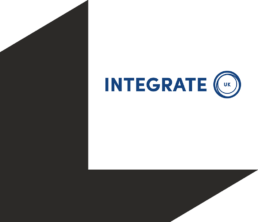
Integrate UK
Integrate UK is a youth-led charity that invests in the skills and talents of marginalised, socio-economically challenged young people to nurture future leaders who promote our vision of gender and racial equality and community cohesion. From a local voluntary group co-founded in 2009 with a small group of girls, we have grown to a national, multi award winning charity that is increasingly run by representatives from the groups with whom we work: most staff are from our target communities and four our six trustees are from racialised backgrounds, including the Chair.
Our approach to achieving our ambitious vision is multifold, focussing on tackling the ongoing inequalities associated with race and gender, including access, participation, attainment, discrimination and all forms of violence and abuse against women and girls. At the same time, we provide platforms and opportunities for minoritised young people to counter divisive rhetoric and advocate for themselves outside the echo chamber amongst the audiences that most fear and mistrust them and to form positive relationships with peers who have had little or no contact with people of colour. Many of the issues they address are controversial, including Islamophobia & racism, honour-based abuse (HBA), FGM and sexual harassment and assault.
They share their messages widely through powerful media resources and change their communities through youth-led Equalities Councils we establish in their schools. Our young activists over the age of 16 who become Outreach Workers use their media resources and lesson plans to deliver peer education workshops and teacher training nationally.
Many of our young people have won prestigious awards, including Woman of The Year, Living Islam award, an honorary doctorate of laws, 5 x Diana awards and many more. Integrate UK was a runner up in the Glaxo Smith Kline awards 2022.
Action for Trustee Racial Diversity
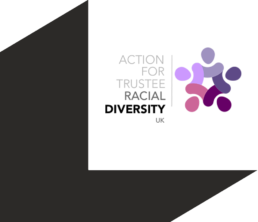
Action for Trustee Racial Diversity (ATRD)
We aim to provide charities with knowledge, resources, toolkits, networks and specialist advice to enable them to take practical steps to increase the racial diversity of their Boards. We created a step-by-step guide for charities to use to diversify their boards. Follow this link to learn more.
We support racially diverse individuals from those who are looking to embark on their trustee journey to those who are experienced trustees. We provide an online network, ATRD Connects, for such people to connect, learn from each other and access trustee opportunities.
Link to our online social network: ATRD Connects: Action for Trustee Racial Diversity UK (mn.co)
Our Corporate Social Responsibility
Our Corporate Social Responsibility
Our Corporate Social Responsibility
2021
- Aspiring Heads – we sponsored a number of tickets for the annual conference.
- Conscious Being – we sponsored a podcast series.
- RWBA – we hosted a #DiverseEd showcase for the Empowering Youth virtual conference.
- The Steve Sinnott Foundation – we delivered DEI training for the network.
2022
- Black Men Teach – we sponsored the creation of a website.
- RWBA – we hosted a #DiverseEd showcase for the Empowering Youth virtual conference.
- Speakers for Schools – we delivered a free assembly to a member school.
2023
- The Difference – we ran a pro bono session at #IncludEd23.
- Educating Whilst Black – we sponsored a podcast series.
- Inclusivi-T Podcast – we sponsored a podcast series.
- NASBTT – we co-hosted series 1 of the DEI for ITTE podcast.
- Racial Equity Networking Dinner (REND) - we sponsored a table.
- RWBA – we hosted a #DiverseEd showcase for the Empowering Youth virtual conference.
- Speakers for Schools – we delivered a free assembly to a member school.
- Young Black Teachers Network (now called Black Teachers Network) – we gifted the founder pro bono coaching.
2024
- The Difference – we ran a pro bono session at #IncludEd24.
- Mix-Ed - we sponsored the creation of a new website.
- MTPT Project – we sponsored coffee mornings in Thatcham and Oxford.
- NASBTT – we co-hosted series 2 of the DEI for ITTE podcast.
- Racial Equity Networking Dinner (REND) - we sponsored a table.
- StepUp Network – we delivered two pro bono keynotes.
2025
- The Difference – we ran a pro bono session at #IncludEd25.
- MTPT Project – we sponsored coffee mornings in London.
- Racial Equity Networking Dinner (REND) - we supported the new regional events.
- RWBA – we hosted a #DiverseEd showcase for the Empowering Youth virtual conference.
- The Steve Sinnott Foundation – we delivered DEI training for the network.
Gypsy, Roma and Traveller Inclusion Toolkit
Gypsy, Roma and Traveller Inclusion Toolkit
Gypsy, Roma and Traveller Inclusion Toolkit
Toolkit collated by Declan O'Driscoll
Who Are Gypsy, Roma and Traveller Communities?
Gypsy, Roma and Traveller communities are a connected but distinct collection of ethnic groups who share similar historical themes and traditions around nomadism. Although the term ‘GRT’ is used regularly when discussing Gypsy, Roma and Traveller communities, it is preferable where possible to express the term fully, demonstrating clearly that ‘Gypsy, Roma and Traveller’ communities are separate and distinct ethnic groups.
What brings our communities together is a shared sense of history and traditions, but also the discrimination we face in everyday life. Deep misunderstanding of who Gypsy, Roma and Traveller people are is commonplace in the UK, with most people not know the difference between a Gypsy, Romany Gypsy, Roma, or Traveller person. Damaging stereotypes and myths are populated in the media, with shows like My Big Fat Gypsy Wedding and The Truth About Traveller Crime portraying inaccurate and harmful narratives though either the guise of entertainment or through misinterpreted facts presented as evidence to the general population.
We encourage citizens, organisation, educators, leaders, health care professionals and the like, to understand for themselves who Gypsy, Roma and Traveller people are and above all remember that Gypsy, Roma and Traveller communities are people who are the same as anyone else. They are British, they are European, there are teachers, lawyers, police officers, academics, there are also individuals who don’t always do what they should do, the same as any other race group existing in the UK today, irrespective of nationality, colour, faith or creed.
The Diverse Educators’ Gypsy, Roma and Traveller Inclusion Toolkit
- How do I know if someone is from a Gypsy, Roma or Traveller community?
- How do I better understand who Gypsy, Roma and Traveller communities are?
- How do I challenge the misrepresentation and misunderstanding of Gypsy, Roma and Traveller communities?
- How do I understand the issues Gypsy, Roma and Traveller children and young people face in accessing good quality education?
- How I do adapt my practices to make me and my colleagues more inclusive educators for Gypsy, Roma and Traveller children and young people?


